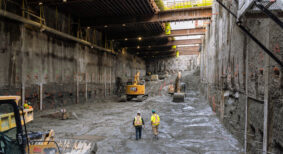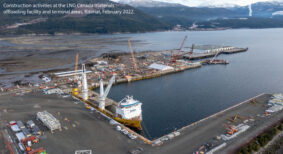No matter how well designed and specified, construction projects cannot be guaranteed to be free of claims. Nevertheless, there are a number of strategies that parties can take in order to mitigate potential challenges that may arise. In no particular order, the following are ways in which an owner can almost guarantee that it will incur claims and delays. There are also some suggestions to avoid those adverse impacts.
1. Make a handshake deal
It is tempting for friendly parties to enter into a handshake or oral agreement. However, handshake agreements can backfire. The majority of litigation in the construction industry is the result of uncertain contract language or unexpected events. Claims can be avoided or mitigated with the use of clear, concise and plain language in a written contract or change order.
2. Unreasonably assign risks
Drafting a contract that unfairly allocates risk to one party can only lead to claims and delays. If the burden of a risk is unfairly placed on one party, the likelihood of a smooth project is significantly reduced. Each party to the contract should only take on the risks that it is best able to control.
3. Don’t keep records
The failure to keep complete records will almost certainly result in a party losing a dispute where the other party has maintained good supporting documentation. Parties should create and maintain project records, including construction schedules, site meeting minutes, change orders and site instructions. Full and complete records will help de-escalate potential conflicts and aid in avoiding unnecessary legal disputes.
4. Don’t communicate
Poor communication will put you on fast track to the courtroom. Maintaining open communication between all parties is essential to a successful project. Furthermore, it is imperative that the owner and its consultant produce clear specifications and performance criteria that will guide expectations throughout the project. Clear instructions and responsive communications are essential to avoid conflicts.
5. Take the low bid, no matter what
The lowest bid is not always the cheapest alternative. A very low bid may be an indication that the bidder does not fully understand the project or is attempting to ‘buy the job’ in anticipation of making up the difference later. Either situation could lead to increased costs and delays. Thus, there are many other important factors that an owner may wish to consider during the procurement process, including quality of work, prior experience, reliability and capacity of the bidder.
6. Don’t include a dispute resolution procedure
Failing to include a process to resolve disputes in the contract leaves little recourse but litigation. Dispute resolution provisions should be developed and tailored to the project. Furthermore, they should be implemented early in the project at the first hint of a disagreement in order to allow parties to resolve or avoid a dispute before friendly relations become acrimonious.
7. Wait until the end of the project to inspect the work
It is important that both the owner and the contractor agree to periodic reviews of the work. Periodic reviews will reveal any defective, noncompliant or incomplete work in a timely manner, which can ensure that there is sufficient time to remediate or complete the work without adversely impacting the schedule or delaying completion of the project.
8. Forget third parties, they are not your problem
While owners do not have contractual relationships with subcontractors, the contract with the general contractor should include provisions identifying requirements to which the contractor must adhere when hiring its subcontractors. It is also important that the subcontractors fully understand the terms and conditions of the construction contract that apply to them in order to ensure consistency in the work.
9. Reject all claims for compensation, extensions or delays
While contractors bid on the basis of project information in the tender documents, sometimes unexpected changes to that information occur after award or unforeseen circumstances occur such as abnormal weather or dramatically different subsurface ground conditions. These events typically result in a change order that increases the cost of the work. The contract should therefore include provisions that properly address changes in scope and unexpected events that may require additional compensation or an extension of time.
10. Do not provide information or notice regarding site conditions
Unless the contract clearly states that the contractor must conduct its own geotechnical due diligence, the failure to provide the contractor with accurate geotechnical information is likely to result in a claim for unforeseen subsurface conditions. Accordingly, owners should fully disclose in the tender documents all geotechnical and subsurface information they have. Similarly, a contractor who encounters an unexpected change in the site conditions should promptly notify the owner promptly of such a changed condition in accordance with the terms of the contract.
Charles Bois is a partner at Miller Thomson’s Vancouver office. This article was written with the assistance of Angie Riano, articled student.









